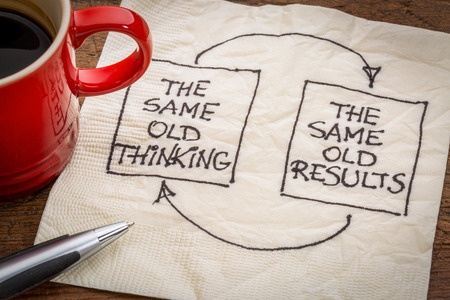 Over the last century an old idea has gained new currency in American culture—the idea that equality of achievement is the right order of things, ordained by God. This idea has led to a variety of mistaken lines of thought, notably these:
Over the last century an old idea has gained new currency in American culture—the idea that equality of achievement is the right order of things, ordained by God. This idea has led to a variety of mistaken lines of thought, notably these:
Mistaken thought 1: Since equality of achievement is ordained by God, “all men are created equal” must mean that people should be equal at all times and in all ways—in childhood and adulthood; in intellectual and physical performance; in financial condition and personal accomplishments.
Mistaken thought 2: Unequal achievement is a violation of right order and God’s will. Those who achieve less are cheated, and those who achieve more are guilty of a moral offense, whether or not they intend it. The former may therefore be considered victims; the latter, victimizers.
Mistaken thought 3: Society has a moral obligation to right the wrong of unequal achievement, and government is best suited to that task.
Here is why these lines of thought are mistaken.
There is no good reason to believe that God wills equality of achievement. Actually, the fact that He gives people different gifts and talents makes inequality of achievement more likely. “Created equal” thus refers not to any expectation of achievement but to something very different—each person’s inherent dignity.
In light of this, as long as dishonesty is not present, exceptional achievement is attributable to exceptional God-given talent and/or exceptional effort. From this more reasonable perspective, achievement is moral rather than immoral, and therefore should be praised rather than deplored.
Unfortunately, many in the governing class, along with many academicians and journalists, have embraced the mistaken ideas rather than the more reasonable ones. Because the moral wrongs such people are concerned about are imaginary, governmental initiatives to correct them have been at least unhelpful and at worst harmful. Here are a few examples:
One such initiative is the expansion of welfare programs to cover not only those who truly cannot support themselves but also those who are simply unwilling to do so. Supporters of such expansion fail to distinguish between the two groups because they believe that failure to support oneself is due to sinful social inequality rather than to the fault of the individual. As a result, those who are unwilling to work tend to regard themselves as victims and to feel their sloth is justified.
Another harmful initiative is governmental attempts to redistribute wealth through punitive taxing of the wealthy. This initiative reinforces the notion that financial success is achieved only by cheating others and therefore reinforces the sense of victimization and entitlement of those who lack a work ethic.
A third harmful initiative is downplaying academic achievement on the assumption that rewarding it celebrates inequality and affronts non-achievers. The sports counterpart of this practice is abolishing score-keeping and rewarding everyone with a trophy. A variation of this initiative is affirmative action, which simultaneously rewards non-achievers and punishes achievers by admitting the former to educational programs and rejecting the latter. Such initiatives simultaneously undermine students’ motivation to learn and diminish the quality of the learning experience. An even more unfortunate effect of such dilution of education occurs in minority communities—the stigmatizing of academic effort as “acting white.”
The notion that high achievement is a moral offense has infected American culture for decades. It continues to stifle individual accomplishment, fuel racial and ethnic discord, and retard economic growth. All Americans will benefit from the return to a more sensible view.
Copyright © by Vincent Ryan Ruggiero. All rights reserved



